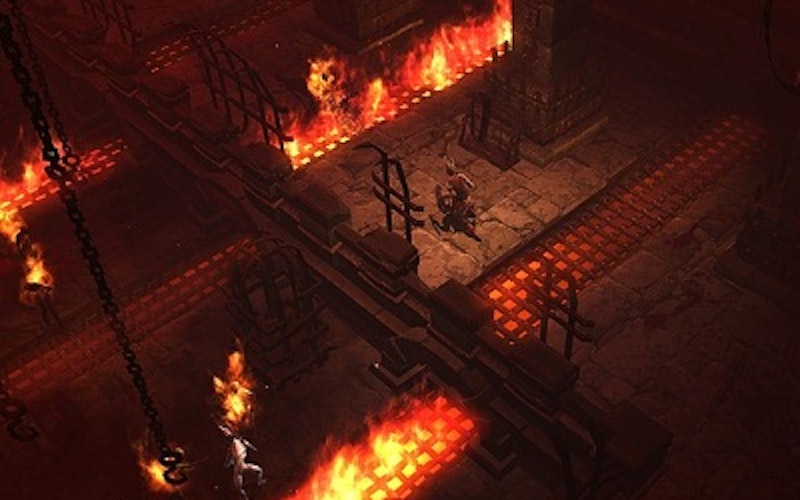
Games
How Diablo 3 and Journey of Jesus do the same thing
Video games do not typically delve into theology. And yet, two very different but very theological games were released last month: Journey of Jesus: The Calling and Diablo 3.
It would seem at first glance that these games could not be more different. Diablo 3 asks the player to hunt down and slay the devil and his minions. Journey of Jesus asks players to do simple things like go fishing, build things and talk to people, all while observing the life and earthy ministry of Jesus. If, however, we understand interactivity to be the hallmark of video games as a medium, we will find that these two seemingly antithetical games are not all that different.
Journey of Jesus has everything one might potentially look for in a “Christian” video game: Scripture references, Biblical characters, animations of Biblical stories and quests that attempt spiritual lessons. Diablo 3, on the other hand, is set in a pagan world with pagan gods who seem impotent or indifferent to the Devil’s schemes. In fact, one of the game’s main characters is an angel who left the heavenly realm and became a man because the gods couldn’t be bothered to save humanity from Diablo and his demons.
Diablo 3 is anything but orthodox in its theology. It presents us with multiple gods who are largely apathetic to the fallen nature of the world. And the forces of evil in the game mostly seem otherworldly, whereas the Bible regularly levels responsibility for the world’s fallen state on mankind. The assumption throughout the game is that humanity is worthy of salvation and capable of achieving it themselves. And the forceful and violent overthrowing of the demonic order is the means by which humanity is to achieve said salvation.

In contrast, the Gospel tells us that mankind is not worthy of salvation and utterly incapable of saving ourselves. God offers humanity salvation freely through the sacrifice of His son on the cross. The salvation of the Gospel comes not through the forceful overthrow of God’s enemies but by willful incarnation and humble self sacrifice.
None of this, however, makes Journey of Jesus a decidedly better game than Diablo 3. Nothing about Diablo 3 makes paganism look particularly appealing - it’s merely a backdrop for clicking your way through more dungeons and destroying more monsters and demons. Similarly, Journey of Jesus has the player clicking through various maps doing rather mundane things in hopes of progressing through its rather predictable story (there are few surprises as the game follows the story line of the Gospel). Despite all their theological differences, both games have the player essentially doing the same thing: lots and lots of clicking and watching to see what your clicking accomplishes.
The clicking in Diablo 3 causes chaos and destruction for the purpose of saving the world from evil, while the clicking in Journey of Jesus accomplishes mundane tasks like chopping down trees in hopes of stepping closer to a cute and cartoonish Jesus. What makes Diablo 3 appealing to a larger audience is the visceral results of the player’s clicking. Journey of Jesus limits what the player can do by allotting a limited amount of energy to click and interact with objects in the game. To get more energy, the player must either wait and play later or purchase more energy with real money. Making one’s way toward Jesus is costly.
Perhaps that speaks to the arduous nature of discipleship as opposed to the immediate appeal of sin. I think, however, the goal of both of these games is essentially the same - they provide us the opportunity to pass the time and experience a story.
I enjoy both Diablo 3 and Journey of Jesus, but I don’t think either game taps into the special narrative power of video games. What the player does in these games doesn’t particularly make the story any more or less meaningful - it’s just how you turn the page.
What Do You Think?
- Have you played either Diablo 3 or Journey of Jesus?
- What other games challenge you to do more than click to accomplish simple tasks?
- How would you define a Christian video game?
Topics: Games, Culture At Large, Arts & Leisure